SMALL SCREEN
Director Sunu Gonera shines a light in a dark corner
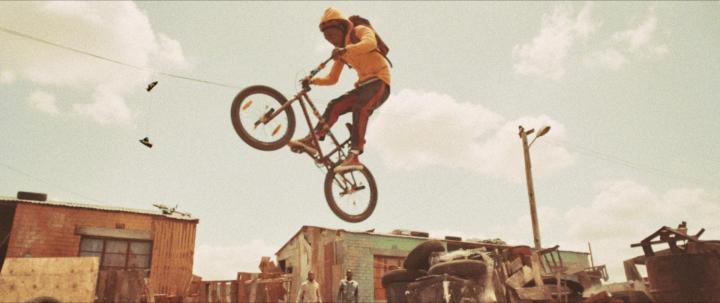
The Zimbabwean-born filmmaker was determined to make his first African feature film on home ground. It took more than a decade and a half, but finally the movie, shot in Cape Town, is dropping on Netflix on 27 November.
There’s a brightness – a literal extra few degrees of hot sunlight – that sears through Sunu Gonera’s new film, Riding with Sugar.
It’s a quality of light that saturates the movie, making the daytime scenes glow with a fierce incandescence while the colours are tropical, vivid and dazzling – just the way we’re used to seeing them here in Africa.
And, of course, the smiles are wider, the dreams full of poetry and ancient mysticism. The energy is ramped up. And, if we’re being honest, so is the poverty, the brutality, the political conflict, the prevalence of crime, and the unhappy gap between rich and poor.
The social rifts between those who profit from the system and those flailing at its fringes are more distinct, more cutting.
But this was the intention. With every cell in his being, Gonera wanted to make this a film that showed his Africa – our Africa – in all its shades. And so the light, bright bits cast deep shadows, and there is darkness and despair lurking too.
Actually, to call Gonera’s film “new” is almost to forget what it is: A feature film that’s taken him at least 15 years to get made. Before he went off to Hollywood to direct his first feature in 2006, Gonera made a 10-minute film – also titled Riding with Sugar – and he’s been trying to get financing for his full-length script ever since.
As you’d expect from a project headed by someone so tenacious, steadfast and believing, it’s an ambitious movie. You discover this during its opening sequence which is a piece of visceral, high-paced action that burns into memory.
In it, the film’s young hero, an asylum seeker named Joshua (played by Kenyan-born British actor Charles Mnene) races his BMX across a vast cross-section of the city. The world that his wild, liberating ride propels us through at breakneck speed is recognisably Cape Town, but with the gears of reality perceptibly tweaked.
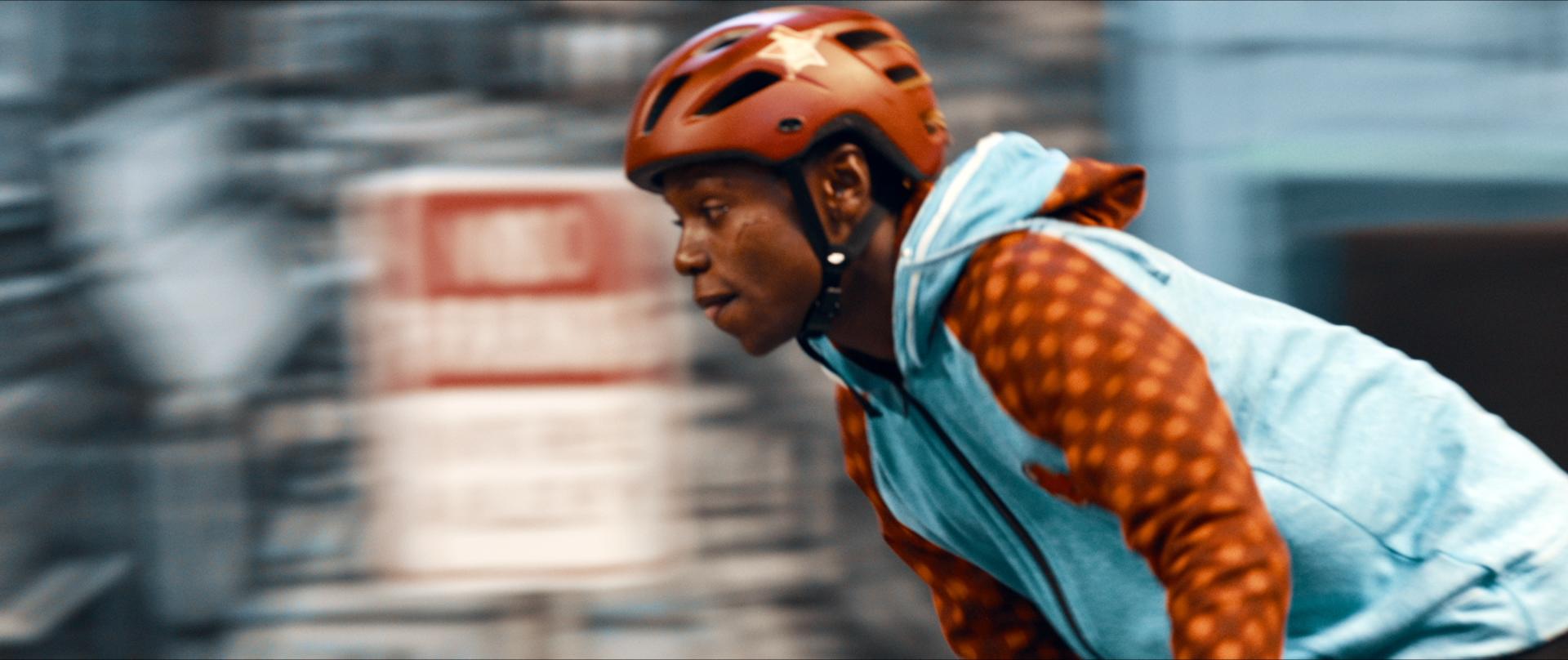
Charles Mnene as Joshua in ‘Riding with Sugar’
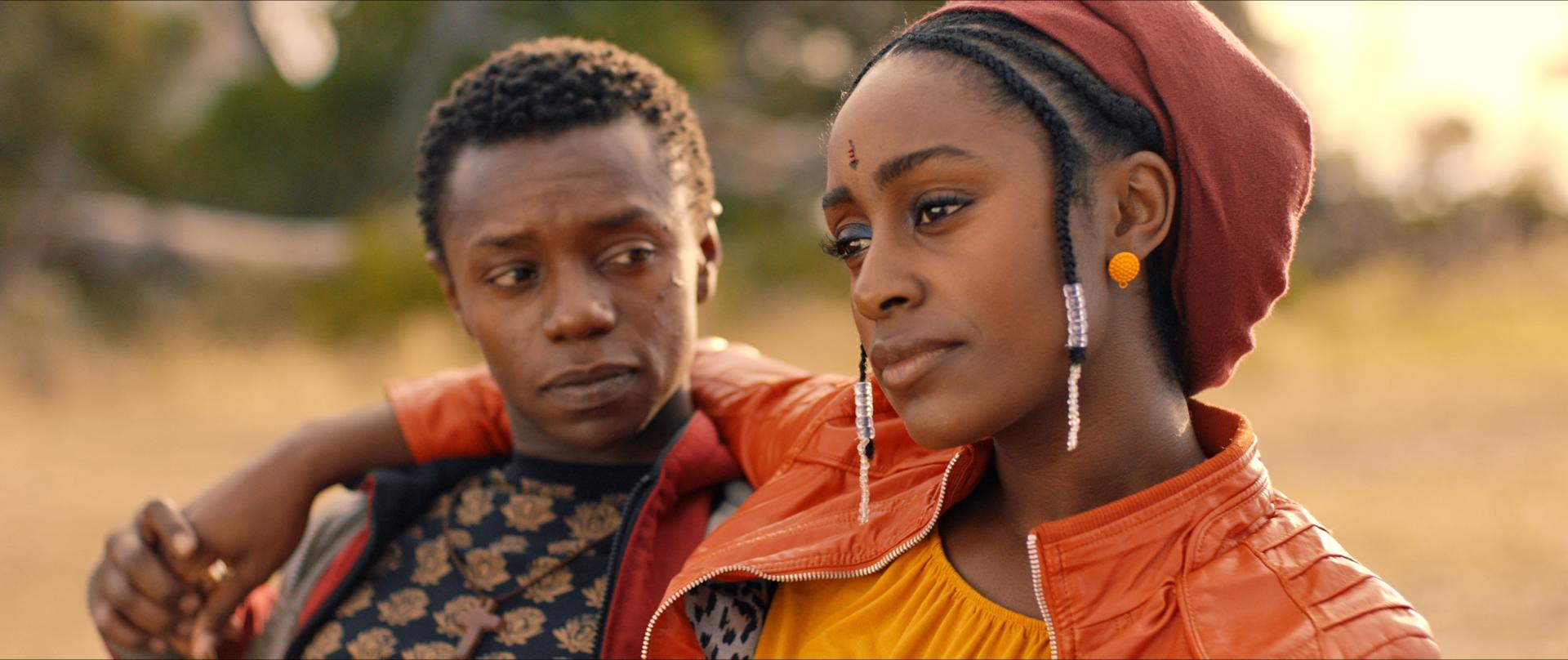
Charles Mnene as Joshua and Simona Brown as Olivia in ‘Riding with Sugar’

Charles Mnene as Joshua with Simona Brown as Olivia in ‘Riding with Sugar’
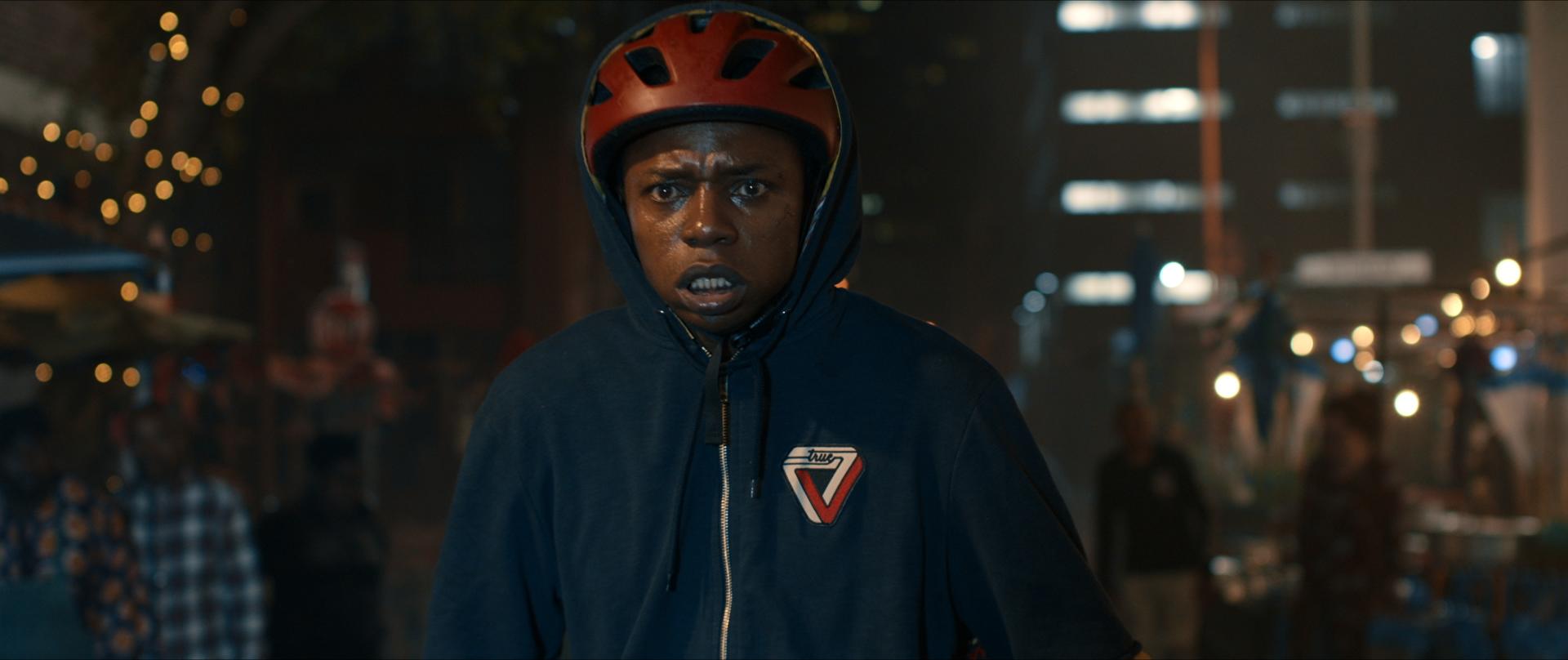
Charles Mnene plays aspirant BMX champion Joshua Hondo in ‘Riding with Sugar’

Hakeem Kae-Kazim as Mambo and Charles Mnene as Joshua in ‘Riding with Sugar’
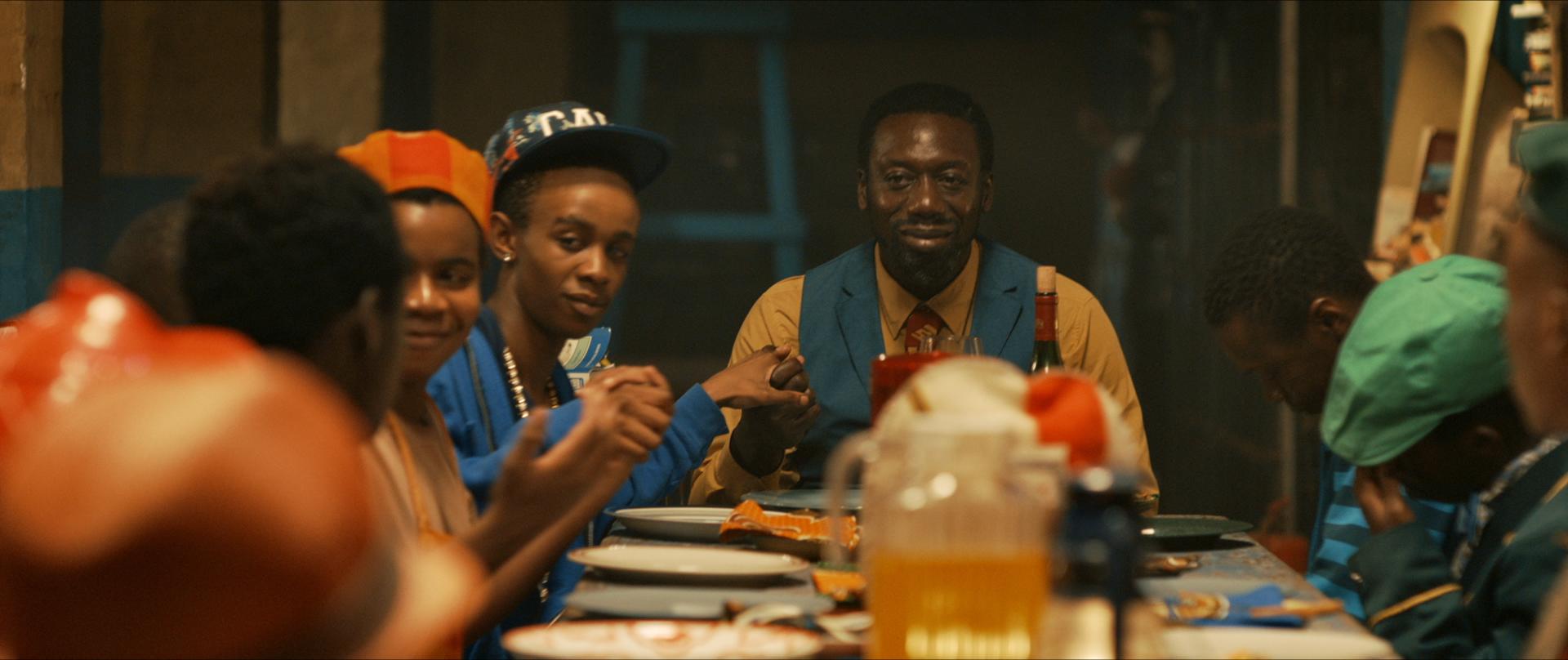
Hakeem Kae-Kazim as Mambo with some of his orphans in ‘Riding with Sugar’
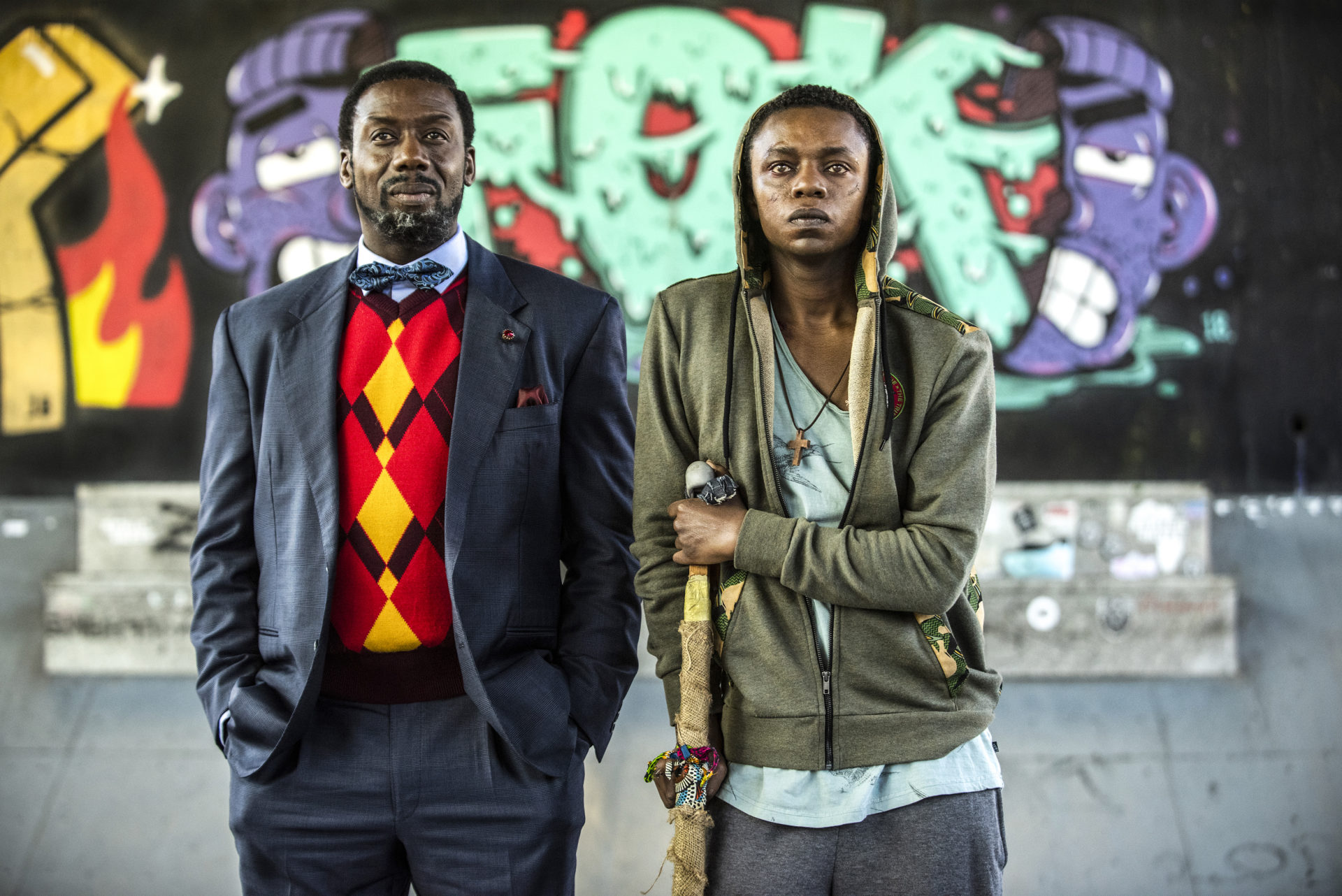
Hakeem KaeKazim and Charles Mnene headline Sunu Gonera’s new film, ‘Riding with Sugar’ (Supplied)
There’s an element of Afrofuturism built into the design and finish of the film, so that the city is ever-so-slightly reimagined. We might be on the cusp of sci-fi, maybe a ghettoland fantasy set in a not-too-distant future. It’s the here and now, but not quite.
As Joshua flies through the after-dark streets, the city’s poorer neighbourhoods, its pavement vendors, its swanky suburbs and its silhouetted Table Mountain coalesce in a terrific montage that’s cut to a pounding house track that grounds us in an urban Africa that, again, is very much of the moment, yet part of some vision of a better tomorrow.
There are moments here that conjure the same miraculous quality that Steven Spielberg achieved in E.T., when – during that famous BMX chase scene – the young hero’s bike literally takes off and flies across the sky.
Spielberg knew that scene was his film’s cinematic highlight and he saved it for his movie’s third act. In Riding with Sugar, the opening bike ride is a hard act to follow, and Gonera instead uses it as a metaphor for a dream that will soon be shattered.
The title credits end just as Joshua’s joyful, carefree ride comes crashing – literally – to a halt. The story has barely begun and this youngster’s big dream of taking part in a BMX championship lies broken on the street.
He is wrenched back into the reality of his life as a dispossessed refugee, and we’re pulled into a vision of his dark, troubled, convoluted memories – a fleeting montage that reveals a disturbing backstory.
At this dark juncture, though, a would-be angel comes to Joshua’s rescue.
Nigerian-born actor Hakeem Kae-Kazim plays Mambo, an eloquent, well-educated, deftly-dressed saviour who enters Joshua’s life and seems determined to help him back on his feet. He’s not only a good Samaritan and intellectual revolutionary, but also larger-than-life, almost Shakespearean, and apparently modelled on some sort of a kind-hearted Fagan in an African take on Oliver Twist. And so, yes, he has a self-funded home for boys without families to call their own. They’re all refugees, misfits, outcasts and orphans.
Joshua is taken in, gets a glimpse of a happier life, and quickly becomes the main focus of what Mambo claims is his main purpose in life: “I shine a light on the minds of the future,” he says.
Plus, to a boy without family, he becomes a father.
If this sounds like the start of a fairytale, it’s only because – as you will have already begun to suspect – all is not as it seems.
It’s easy to speculate that the film’s young hero is naïve, that the film’s grounding in Gonera’s own idealism and optimism has created an unreality that’s too syrupy, with characters that are almost fablesque.
But it’s his optimism and hope, despite all the awfulness of his reality, that makes Joshua compelling.
He is, the film suggests, willing to betray reason itself to believe that Mambo is someone he can trust, someone he can believe in. That he is a surrogate for the father he lost during the violent strife in Zimbabwe.
The traumas of Joshua’s earlier life – the experiences that drove him across the border into South Africa to seek his fortune – bear heavily down on him. Beyond the bright sun and radiant hues we also witness the tragedy, feel the anguish. Gonera gives us glimpses of the nightmare memories that play out in Joshua’s head. A sense of who he is and what he has been through is pieced together from these fragments, along with glimmers of insight from his ancestors, voices from the spiritual realm.
And so Gonera plays this difficult game. He jumps back and forth between worlds, between hope and hopelessness. One is fantastical, a world where dreams do come true, where you have a family, where there’s a place in the sun where you can plant your life.
The other is miserable and cruel, violent and untrustworthy. And it is more often than not the reality with which someone like Joshua is faced.
“Africa really does play that fine line,” says Gonera. “You drive out of your gate in your fancy ’hood and at the first robot there are people begging for food. That’s Africa. Or you’re playing in a park in the suburbs and suddenly you’re being held up at gunpoint. It’s crazy, but for kids in the township, that’s their reality every day.
“I wanted the film to straddle that line, to show the contradictions, the complexities, the paradoxes of life in Africa. It’s a very difficult thing to show, which is why I think magic realism is great – it enables you to encompass multiple worlds.”
Which means, too, that you need to look at Riding with Sugar through a different sort of lens, and to some extent forget the rules of storytelling that Hollywood has weaned us on. The Western narrative is linear, Gonera says, but African storytelling has a spiritual component that is also circular.
That may well be, but it’s nevertheless disappointing that the film never again reaches the fantastical heights achieved during its opening minutes. And that makes for a third act that, while packed with plot development and big reveals, is ultimately a bit timid.
Still, there is so much going on that really is worth seeing. And it is an important film.
It’s worth remembering that when we viewed E.T. as children in 1982, we willingly suspended our disbelief for the chance to really accept that an adorable alien had befriended a boy with a BMX.
By contrast, I think Riding with Sugar is asking us to suspend our belief in the fictional fantasy of life in Africa. It’s asking us to recognise the terrible truths and hard realities that exist on just the other side of the tracks. It’s a film asking us to see through the make-believe, to acknowledge what we too often choose to ignore.
And the film asks you to recognise Joshua’s hopes and dreams, his frustrations and fears. You will glimpse these as part of his internal world thanks to Charles Mnene’s taut, engaging performance.
Because, beyond Joshua’s physical scars, Mnene shows us a universe of emotions that this boy on the cusp of manhood has bottled up inside of himself. For much of the film, his face – fighting to contain all the pent-up rage and fury, sorrow and disappointment – is a vivid portrait of what it means to be a young African gazing across the landscape of an unknowable future.
It is the face of someone who has been hurt, betrayed, left to fend for himself. It’s a hardened, battle-weary face. And yet there’s a softness in his eyes. And his eyes are full of light. DM/ ML
Riding with Sugar premiered on Netflix on 27 November.
















 Become an Insider
Become an Insider
Comments - Please login in order to comment.